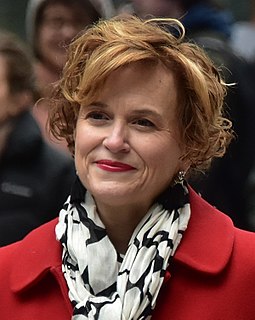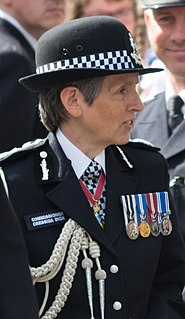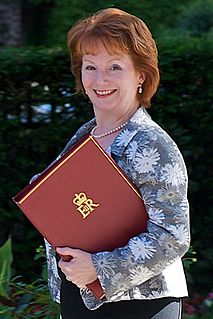A Quote by William Bratton
Policing has to be done compassionately and consistently. You cannot police differently in Harlem than you're policing downtown. The same laws must apply. The same procedures must be employed. Certain areas at certain times may have more significant crime and require more police presence or more assertiveness, but it has to be balanced.
Related Quotes
In Baltimore they can't do police work to save their lives. Now because of Freddie Gray they're not even getting out of the car and policing corners - they're on a job slowdown, basically. Right now if the police stopped being brutal, if we got police shooting under control, and the use of excessive force, if we have a meaningful societal response to all that stuff, and the racism that underlies it, the question still remains: what are they policing, and why?
Tonight, I propose a 21st Century Crime Bill to deploy the latest technologies and tactics to make our communities even safer. Our balanced budget will help put up to 50,000 more police on the street in the areas hardest hit by crime, and then to equip them with new tools from crime-mapping computers to digital mug shots. We must break the deadly cycle of drugs and crime.
The murder clearance rate now in my city Baltimore is almost non-existent. Nobody can solve a murder, nobody can do any actual police work, because they've learned how to do bad police work, chase drugs. Fighting vice, while being unable to respond to sin. Generations of cops have learned how not to police work by policing the drug war. Not only are they police brutal, they're ineffective. Baltimore is more violent than it has ever been in modern history.
Most thoughtful people would agree that morality in the absence of policing is somehow more truly moral than the kind of false morality that vanishes as soon as the police go on strike or the spy camera is switched off, whether the spy camera is a real one monitored in the police station or an imaginary one in heaven.
Crime in the city streets is more than a political issue. It's a too rampant fact.... In Indianapolis they have come up with a most sensible, affordable approach to the problem. Policemen are assigned their police patrol cars for personal use after hours. They are encouraged to use the police car while taking the family shopping, to the movies, and everywhere one takes one's family. As a result, says the Police Chief's assistant, we may have as many as 400 cars on the street instead of 100 or so per shift. [And] the presence of the police car obviously indicates the proximity of policemen.
Lives are saved when those potential killers are confronted by a police officer, a strong police presence and actual, honest-to-goodness, up-close 'What are you guys doing on this corner at 1 o'clock in the morning' policing. We need to be careful it doesn't drift away from us in the age of viral videos, or there will be profound consequences.


































